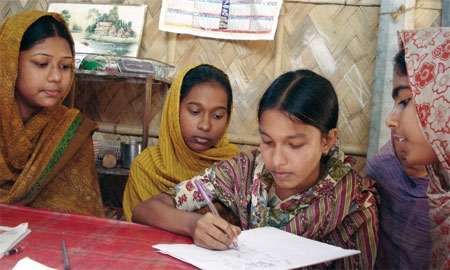“Out of adversity comes opportunity,” Benjamin Franklin once famously declared, and a year after a devastating civil war brought independence to East Pakistan, as Bangladesh was formerly known, Sir Fazle Hasan Abed left his executive accountancy position at Shell Oil and devoted himself to helping fellow Bangladeshis help themselves. He believed that to change poverty, you had to change society, especially in rural communities.
Founded in 1972 and dedicated to empowering the poor to bring about change in their own lives, his multiple award-winning BRAC project – which started as an acronym (Bangladesh Rehabilitation Assistance Committee) and became a motto, “building resources across communities” – has pioneered a business-like approach to tackling the realities of poverty and has arguably become the most successful non-governmental organisation (NGO) on the planet.
The unleashing of human potential through self-reliance is at the core of BRAC’s operations. After initially being involved with relief work, BRAC has developed support services in the areas of human rights and social empowerment; education and health; economic empowerment and enterprise development; livelihood training; environmental sustainability; and disaster preparedness.
According to Subinay Nandy, country director, China, at the United Nations Development Programme: “BRAC is the world’s largest development organisation and is doing tremendous work impacting the lives of millions. BRAC is making a significant contribution to Bangladesh, making huge leaps forward in meeting the Millennium Development Goals.” In his book Freedom from Want, Ian Smillie refers to BRAC as “undoubtedly the largest and most variegated social experiment in the developing world. The spread of its work dwarfs any other private, government or non-profit enterprise in its impact on development.”
BRAC launched its microfinance programme in 1974 to provide the poor with the economic tools to fight their own way out of poverty, which now distributes around $1 billion (£640,000) a year in microloans. In partnership with the IFC and ShoreCap International, it is also behind one of the leading private banks in Bangladesh – BRAC Bank – that is renowned for its support of small and medium-sized enterprises (SMEs).
BRAC now reaches over eight million borrowers, with the number steadily rising due in part to this year’s launch of bKash Limited, a mobile financial service provider in Bangladesh and a subsidiary of BRAC Bank.
Gender equality, respect for the environment and inclusivity cut through all of its activities. BRAC is also an internet service provider, has a university, and its primary schools educate 11 per cent of Bangladesh’s children. BRAC also runs feed mills, chicken farms, tea plantations and packaging factories.
Although BRAC is now active in 10 countries and spans three continents, the majority of its work remains in Bangladesh. Its low-cost, effective and adaptable solutions to the day-to-day problems facing poor families can be scaled up quickly to a national level and now reach every village in the country, which covers an area roughly twice the size of Ireland and has a population of more than 158 million people.
BRAC has built a massive global network of micro-franchised entrepreneurs providing services in agriculture, poultry, livestock and health. Sir Fazle calls it a “holistic, sustainable, market-oriented approach” to poverty alleviation that uses microloans, training and branding, while offering borrowers low-cost access to inventory, efficient distribution systems and continuous support. He recently presented his approach to more than 2,000 delegates at the Global Microcredit Summit 2011 in Valladolid, Spain.

0 COMMENTS